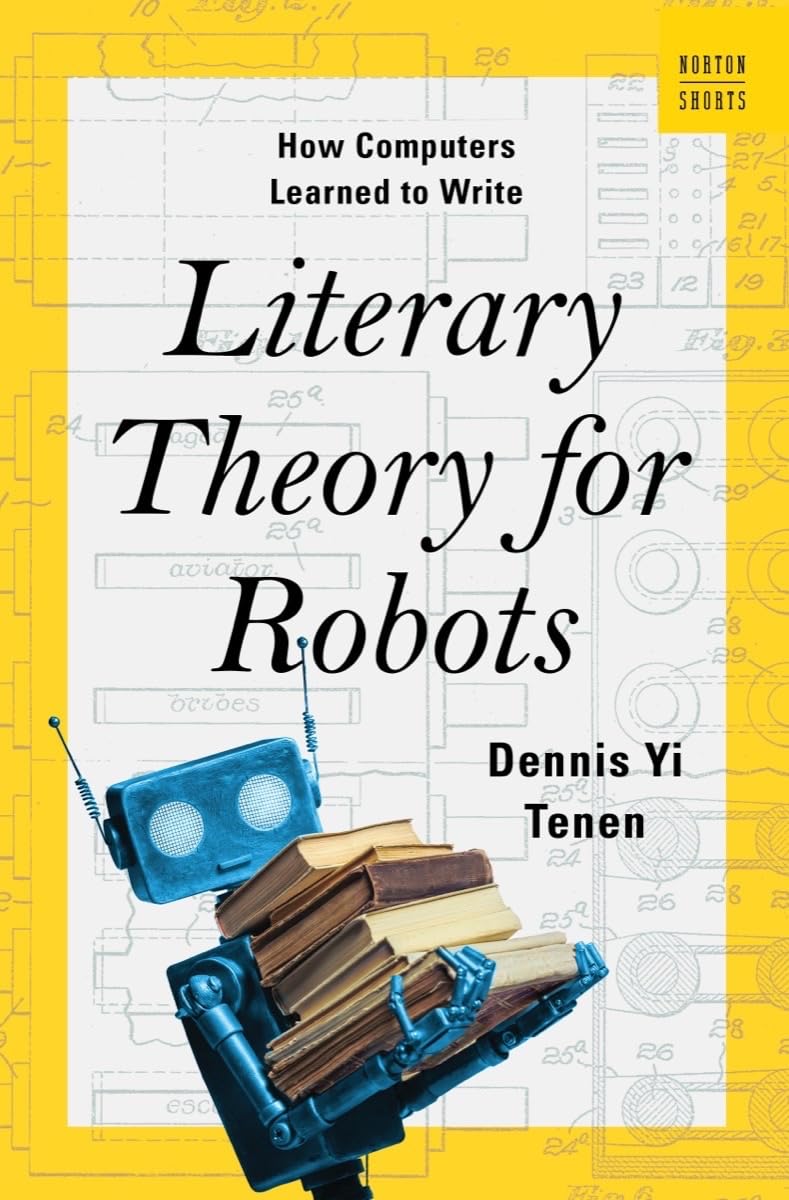
Literary Theory for Robots: How Computers Learned to Write (A Norton Short)
機器人的文學理論: 電腦如何學會寫作
內容介紹
★Norton Short新書系最讓人期待的一本書,2024年2月出版
工業時代的自動化衝擊了手工製鞋師傅與裁縫傳統職業,透過機器與流水線標準化流程,人們得以購買便宜多樣式的鞋子與衣服。如今人工智能(AI、ChatGPT)將衝擊作者、醫生、教授、程式設計師與律師等行業。
聊天機器人肯定會對我們的閱讀、寫作和思考方式產生重大影響。無論好壞,AI/ChatGPT正被用來尋找資訊、影響公眾輿論、診斷疾病,並在網路上影響政治討論。我們是如何走到科技運用的這一步? 我們可以做些什麼來面對新科技的衝擊?
《機器人的文學理論: 電腦如何學會寫作》這本書揭示了現代人工智能的秘史,帶領讀者進入迷人的旅程,從中世紀的阿拉伯哲學到通用語言的願景,從好萊塢編劇工廠到根據俄羅斯民間故事訓練的導彈防禦系統。在這本對文學和電腦科學發展的反思中,前微軟工程師和比較文學教授鄧尼斯·易·特寧(Dennis Yi Tenen)為人工智慧的最新發展提供了清晰的背景,對於運用智能科技生活的人類有著重要的警示。
目錄
第一章: 做為隱喻的智能
第二章 文字的魔力
第三章: 十七世紀的人工智慧—可以運算數學與寫詩的「數學風琴」
第四章: 計算機的前身—「分析機」
第五章: 當寫作可以運用公式來生產
第六章: 透過範本化運作的世界
第七章: 瑪爾可夫鏈--機器學習和人工智慧的基石
第八章: 給未來人工智能的11個創意
作者介紹

鄧尼斯·易·特寧(Dennis Yi Tenen)是哥倫比亞大學英語和比較文學的副教授。鄧尼斯·易·特寧先前在微軟工作,是一名軟體工程師,現在是哥倫比亞大學資料科學研究所(Columbia’s Data Science Institute)的研究員,他住在紐約市。作者的推特: https://twitter.com/dennistenen
書評
"Timely and original, this is an essential resource on the history of text generating AI, and its future."
― Publishers Weekly
"Intriguing. . .Yi Tenen, stirring some wit and anecdotes into the story, sets out the material in non-technical terms, making for an entertaining, informative read. An eclectic and erudite tale of how wide-eyed visions become smart, interactive tools."
― Kirkus
"Reading this book is like taking a walk in a literary forest. You will see up close trees whose names you never knew and discover paths that lead your mind in new directions. Tenen guides us along the way, by putting in historical context how machines started out as voracious readers and emerged as creative writers."
― Jeannette M. Wing, Professor of Computer Science at Columbia University
"Literary Theory for Robots is many things―brainy, chatty, charming, disarming―but, above all, it is great fun to read. Dennis Yi Tenen’s cast of ‘lovely weirdos’ and their wheels, charts, templates, schemas, and links will stay with me for a long time. So will his insistence that intelligence is a social and collective phenomenon, one whose history reveals the human presence behind every machine."
― Merve Emre, author of The Personality Brokers: The Strange History of Myers-Briggs and the Birth of Personality Testing
"Literary Theory for Robots serves as an alternative to the breathless utopian or apocalyptic hallucinations of the tech bros funding the AI revolution, instead offering a highly relatable perspective on thinking machines grounded in history, literature, and lived human experience. Tenen shows that truly understanding the future of our digital augmentation depends not on more STEM but on more liberal arts. This book will be remembered as the moment thinking people realized how to raise better robots: read them good stories."
― Douglas Rushkoff, author of Survival of the Richest: Escape Fantasies of the Tech Billionaires
相關連結
